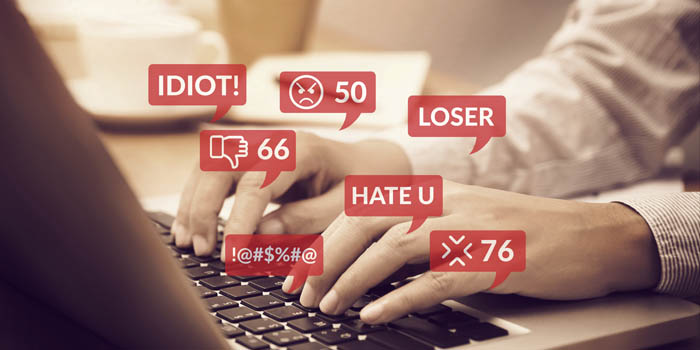March Madness is one of the hottest events in professional sports. Needless to say, it attracts millions of bettors each year. While many enjoy wagering regardless of the outcome, others are so focused on winning that they end up abusing athletes on the web.
ESPN addressed this relevant issue, highlighting how online bullying can affect professional players. It noted that abusers would sometimes go as far as threatening the players’ well-being. An FBI agent spoke with ESPN on the matter, saying that this is an issue that seems to be growing proportionally to the expansion of sports betting in the United States.
Meanwhile, Epic Risk Management’s head of delivery, Mark Potter, told the news outlet that colleges are aware of the issue and are stressing over it.
According to ESPN, losses affect players. Damion Baugh, a Horned Frogs player, was one of the many college athletes bombarded with abusive messages from angry bettors.
Baugh’s team was recently losing to Gongaza by six points. However, Baugh was able to score three additional points for his team right before the end of the game. While the young player failed to change the fact that his team lost, he jeopardized certain bettors’ wagers, prompting an assault of abusive messages.
Baugh had not been abused on social media before. He was let down by the sports fans who only care about the bets.
Everybody playing sports growing up, we play until the whistle, play until the end of the game. People just forgot about that. Saying I shouldn’t have taken the shot is saying, ‘We don’t care about the game. We just wanted to win our money.
Damion Baugh, Horned Frogs player
Baugh slammed the people who think that abusing college athletes is okay.
Abusers Will Use Whatever They Can to Hurt the Players
ESPN attributed the issues to the rapid growth of sports betting in the US. Five years ago when the PAPSA was repealed, around 1% of players had access to legal betting. Now, this number has skyrocketed to 56%.
Right now, online abuse primarily affects male athletes but ESPN predicts that, in the future, it may become commonplace in women’s sports too.
Anthony Grant, Dayton men’s basketball coach, previously proposed introducing rules that prevent abuse in sports. He said that people who attack kids on social media sicken him.
Luckily, at least some of the people who send death threats on social media get punished for their misbehavior. In 2019, Benjamin Patz, a young bettor told a Pepperdine basketball player that his “throat will be severed open” and that his family “will be beheaded and burned alive.” Patz was eventually sentenced to 36 months of probation after pleading guilty to transmitting threats.
Patz is but one of many people who send similar threats to players. While some get used to it, others never do. Abusive messages oftentimes include racial slurs, death threats and angry remarks.
The Issue Unites Leagues, Operators and Regulators
On March 7, 125 collegiate sports officials, regulatory specialists and executives of gambling companies gathered to discuss harassment in professional sports. They determined that this is one of the issues that unite them all.
Not only does such abuse hurt the integrity of sports but it is oftentimes indicative of a gambling problem. This, on the other hand, may be related to substance abuse or mental health disorder, Keith Whyte, the executive director of the National Council on Problem Gambling, said.
Matt Schuler, the executive director of the Ohio Casino Commission, was angrier with the abusers and called them “lowlifes who are under the impression that athletes are there to make money for them.”
Such issues have forced the NCAA to try and stay away from the sports betting industry. Jim Brown, a former NCAA official noted that, curiously, the issue is much more prevalent in North America than in other markets where sports betting is legal.
Some analysts fear that the problem is only going to get worse.
